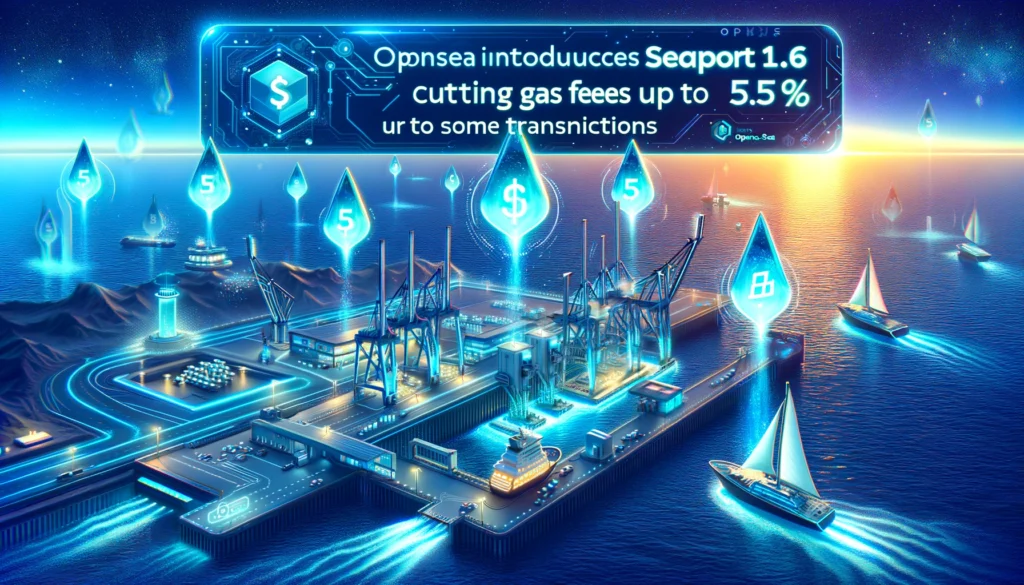OpenSea and the Seaport Working Group have launched Seaport 1.6, the latest version of the NFT marketplace protocol for the Ethereum Virtual Machine (EVM) ecosystem. The upgrade introduces ‘Seaport hooks,’ inspired by Uniswap v4 hooks, aimed at facilitating the development of applications to enhance NFT utility and liquidity by serving as order fulfillment plugins, enabling seamless integration of custom contracts into the Seaport protocol.
Compared to its predecessor, Seaport 1.5, version 1.6 leverages the latest Ethereum Dencun update, resulting in a 5% reduction in gas fees for some transactions, with major EVM chains already adopting this deployment. Through the Seaport hooks function, contracts can be deployed and invoked by Seaport, ensuring efficient order execution and enabling NFTs to adapt their properties based on purchase conditions such as price and volume, as well as facilitating the development of bonding curves and price oracles for NFTs.
OpenSea plans to transition user orders to Seaport 1.6 on Monday, March 25, without requiring user interaction, and as of Monday, April 1, only Seaport 1.6 orders will be accepted by the OpenSea Developer API, phasing out Seaport 1.5 over time. Additionally, the integration of Seaport hooks is expected to expand NFT sales liquidity from various on-chain sources, enhancing DeFi and NFT interoperability by introducing features like time-weighted average price (TWAP) oracles for the NFT sector.
Opensea emphasized that hooks and the broader Seaport ecosystem invite the developer and creator community to innovate for NFTs and enable these experiences to be natively surfaced. This update coincides with a slump in the NFT market, with OpenSea dropping to fourth place among NFT marketplaces, accompanied by a significant decrease in the average price of digital collectibles on the platform. While Bitcoin network activity has increased, Ethereum NFTs have seen a notable decline in price floor in recent months.
